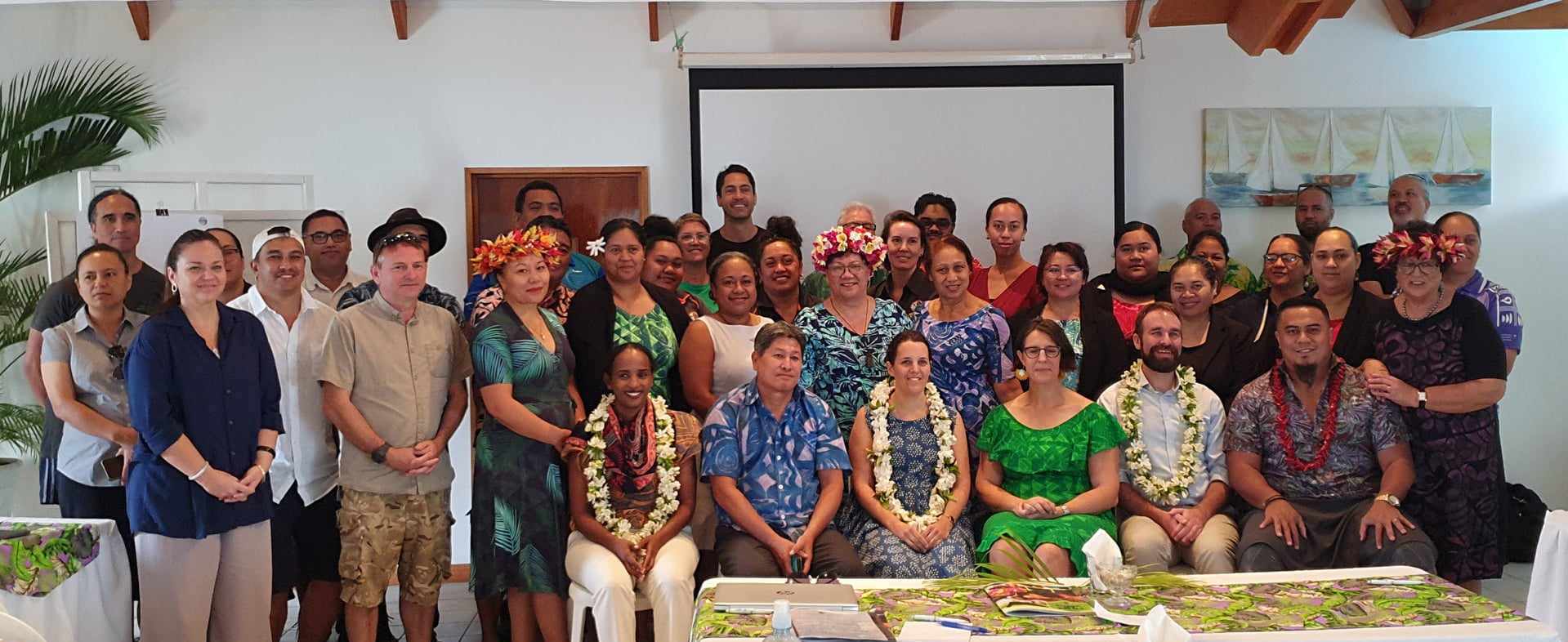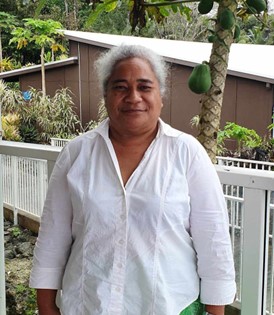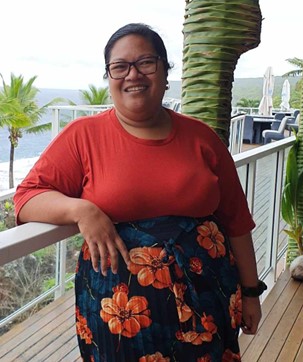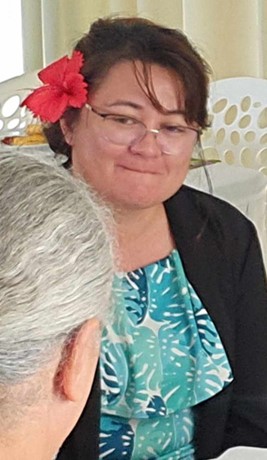By Sita Leota (Monitoring & Evaluation Specialist, UNDP) and Taupa'ū Joseph Mulipola (Programme Analyst, UNDP)
Digital Readiness in Niue and Cook Islands: Key Women Behind the Movement
October 4, 2023

The Digital Readiness Assessment workshop in the Cook Islands
Technological advances in the 21st century mean that remote island countries like Cook Islands and Niue have seen how business operations and means of communication have changed, new employment opportunities have arisen, and the excess of information on the internet. Under the project for the SIDs Digital Joint Programme in these two countries, the Samoa MCO mission in August focused on policies and strategies to address some of the pathways to be ready in the digital space especially in the context of SIDS with dispersed populations, remoteness, and limited resources available. Extensive consultations and discussions with government and the private and civil society sectors allowed room to identify key thematic areas for digital transformation and provided the opportunity to further gauge national buy-in for Digital Transformation Strategies for both Niue and the Cook Islands. Participants in the workshops reaffirmed the importance of digital tools and technologies for national development and to support their respective organisations and sectors.
There was broad validation of the findings of the Digital Readiness Assessment in Niue, enabling the recommendations to contribute to the roadmap of the eventual National Digital Strategy. Four strategic priorities were identified from zero-draft of this strategy developed earlier in the year: national digital literacy, end-to-end digital infrastructure, governance and leadership, and creating a catalytic environment. As such, the workshop focused on strengthening this document through local input relating to digital activities, priorities, and tackling existing challenges.

Chrispina Konelio
Chrispina Konelio, who has worked for the Niuean government for more than 30 years and currently in the Integrated Water Resource Management project, points out that one of the biggest issues is data reporting and accessibility of data. “Having this strategy in place is good for all of us especially with the reliability of data to use and manage. This sharing of information and knowledge and how to move forward with digital is something we really wanted to have in Niue, and making sure there is clarity on how we share information and how information should be readily available to us in digital form.” With current network restrictions, she added that, “If we want private sector to be part of the team to all go forward, then it should be available to everyone.”

Hender Poumale
Hender Poumale, who heads the Niue Centre of Excellence in Information Technology (CEIT), said because the ICT space is usually male-dominated, she’s always excited to advocate for women to join this space. “We use ICT in our daily lives, in our communities, in schools and in broader government. It is good to see everybody come together, getting all the relevant stakeholders, and understanding all the roles everybody’s playing in ICT within their different Ministries or within their different sectors and how everybody can contribute to the success of the Strategy coming into play. A lot of the work needs to be done but it is good to see some alignment as to where each sector lies and who’s responsible for doing things and moving forward.”
For the Cook Islands, there was the official launch of the country’s national ICT Policy and the UN Resident Coordinator present to reaffirm UNDP and the UN’s Commitment to supporting the Digital Transformation journey of Cook Islands. Their Digital Transformation Stakeholder Workshop included the review, discussions, and feedback on the Digital Readiness Assessment (DRA) report.

Miimetua Nimerota
Centre Director for Centre of Excellence in IT (CEIT) in the Cook Islands, Miimetua Nimerota, said: “Opportunities like this one bring together stakeholders from the private sector, civil society and government and is the perfect opportunity for this cross-pollination of ideas, information-sharing and networking and that alone provides a lot of value.” She added that working in the private sector and being at the workshop has helped her in that, “I’m learning what some of the government initiatives are that are happening, I’m learning who the other civil society organisations are, and because of these discussions, I am now more greatly aware of what are some new and emerging issues that I can use to develop our services and our education programmes going forward. Besides setting national direction, this [Strategy] starts with these kinds of conversations.”
The workshop initially focused on unpacking three core parts of the strategy: explore, experiment, and empower. These generated significant discussion amongst the groups, and provided extensive contributions for the updated draft of the National Digital Strategy. The group was highly engaged and excited about the potential of digital for Cook Islands’ development journey.

 Locations
Locations



